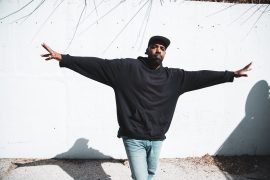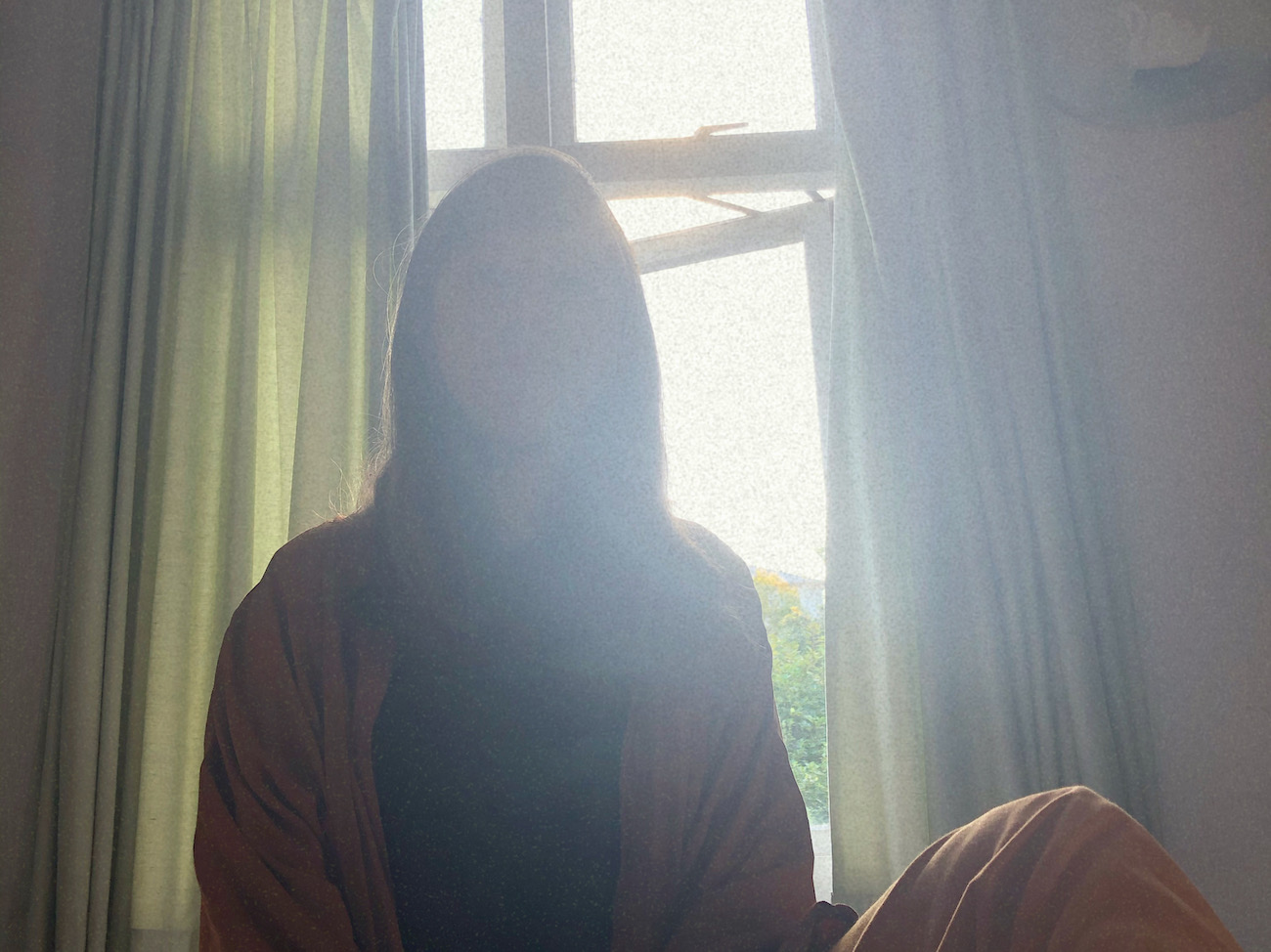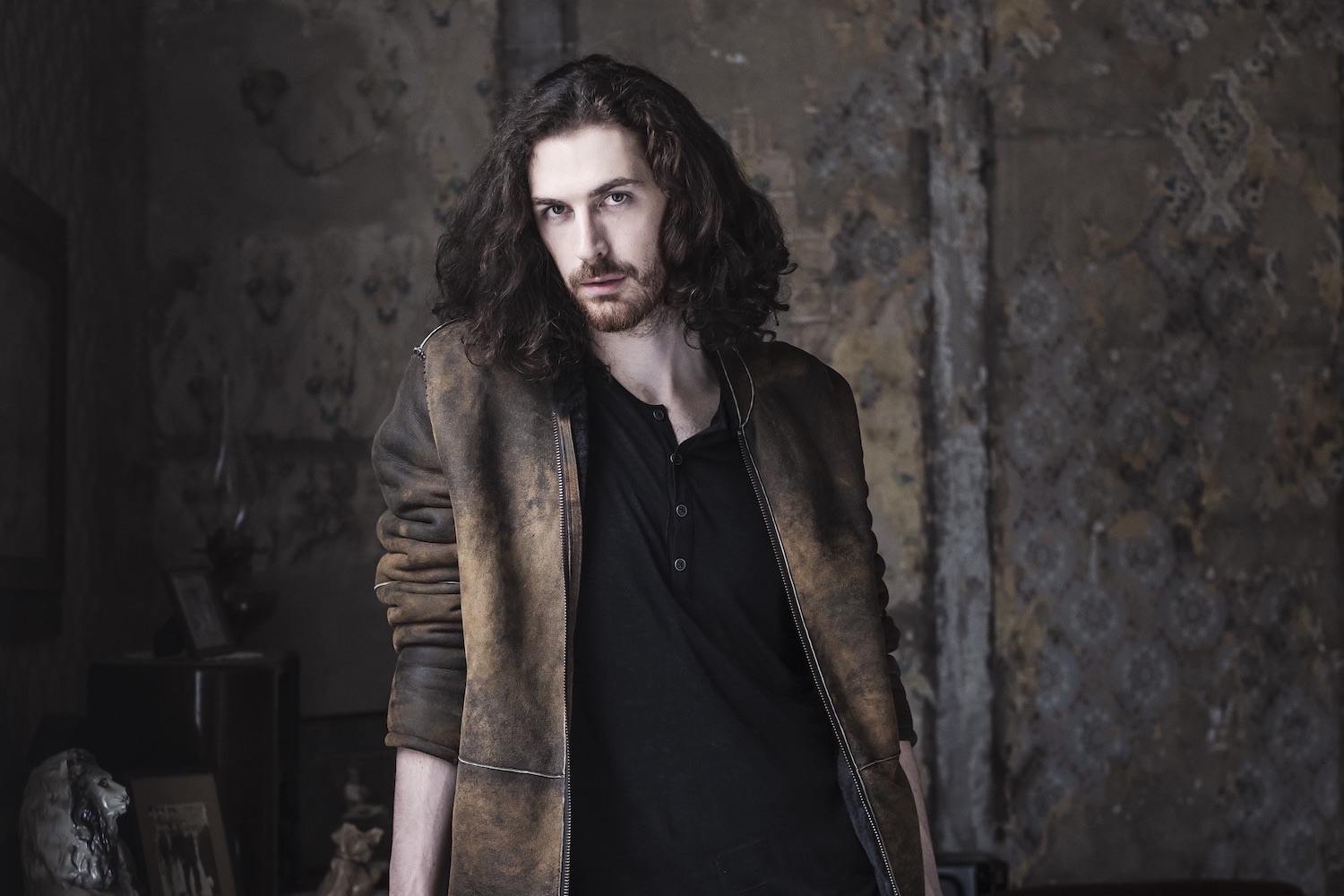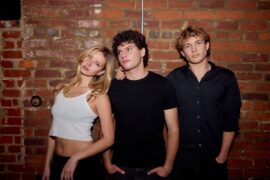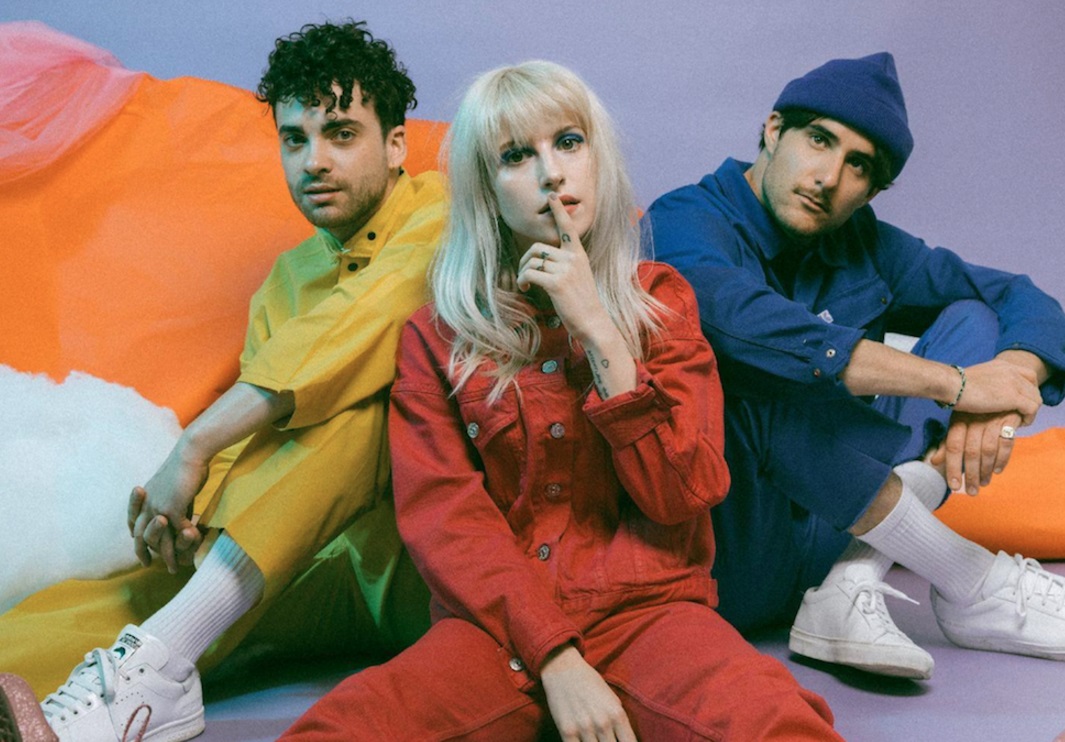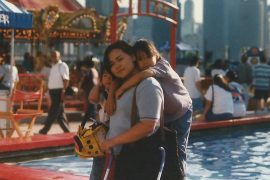The needle in Nashville’s haystack, singer/songwriter Savannah Conley dives into the depths of her intimately vulnerable, unapologetically raw, and beautifully breathtaking debut album ‘Playing the Part of You Is Me’ in a candid conversation about songwriting, mental health, and the ceaseless turbulence of young adulthood.
‘Playing the Part of You Is Me’ – Savannah Conley
This is where creativity lives, but it’s also where mental illness lives.
Savannah Conley’s music aches in more ways than one.
The Nashville-based 25-year-old doesn’t just view songwriting as a passion or a pastime; for her, it’s a coping mechanism: A therapeutic tool that often hurts like hell in the moment, but inevitably leads her to a space of deeper connection, understanding, and emotional catharsis.
“I affectionately call myself vomit writer,” she laughs. “It’s very much like that for me, even down to when you have to throw up, you feel sick, and then you throw up, and then you feel better, that’s what writing is for me! I feel shitty, and then I write, and then I feel better.”
Active since 2017, Savannah Conley has been making intensely intimate music from the start: “She bares herself for all to see throughout Twenty-Twenty, her raw lyrics and mournful melodies resonating with a certain timeless universal human depth and guilt,” Atwood Magazine wrote of her 2018 debut EP. The ensuing years (and two more EPs) have enshrined Conley’s place as the “needle in Nashville’s haystack,” but it’s on her long-awaited debut album that all of her talents, and all of her traumas, truly collide in spectacular form.
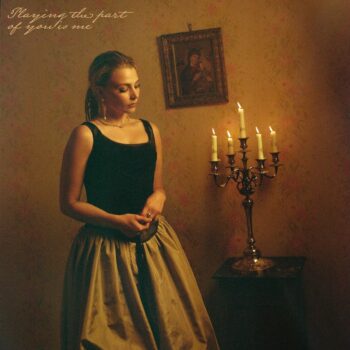
Independently released May 12, 2023, Playing the Part of You Is Me is a visceral and vulnerable triumph: An intimate, unapologetically raw, and beautifully breathtaking eleven-track record that finds Conley – a two-time Atwood Magazine Editor’s Pick – reckoning with external forces and her own inner demons, navigating the throes of mental illness and young adulthood while blending substance with style. Radiant indie pop melodies come to life through her own soaring and stunning voice, accompanied by a dazzling array of rich vocal harmonies, glistening guitar licks, vibrant keys, churning drums, and the occasional tastefully-placed orchestral flourish.
It’s sonically captivating and emotionally cataclysmic: An altogether enchanting experience to behold.
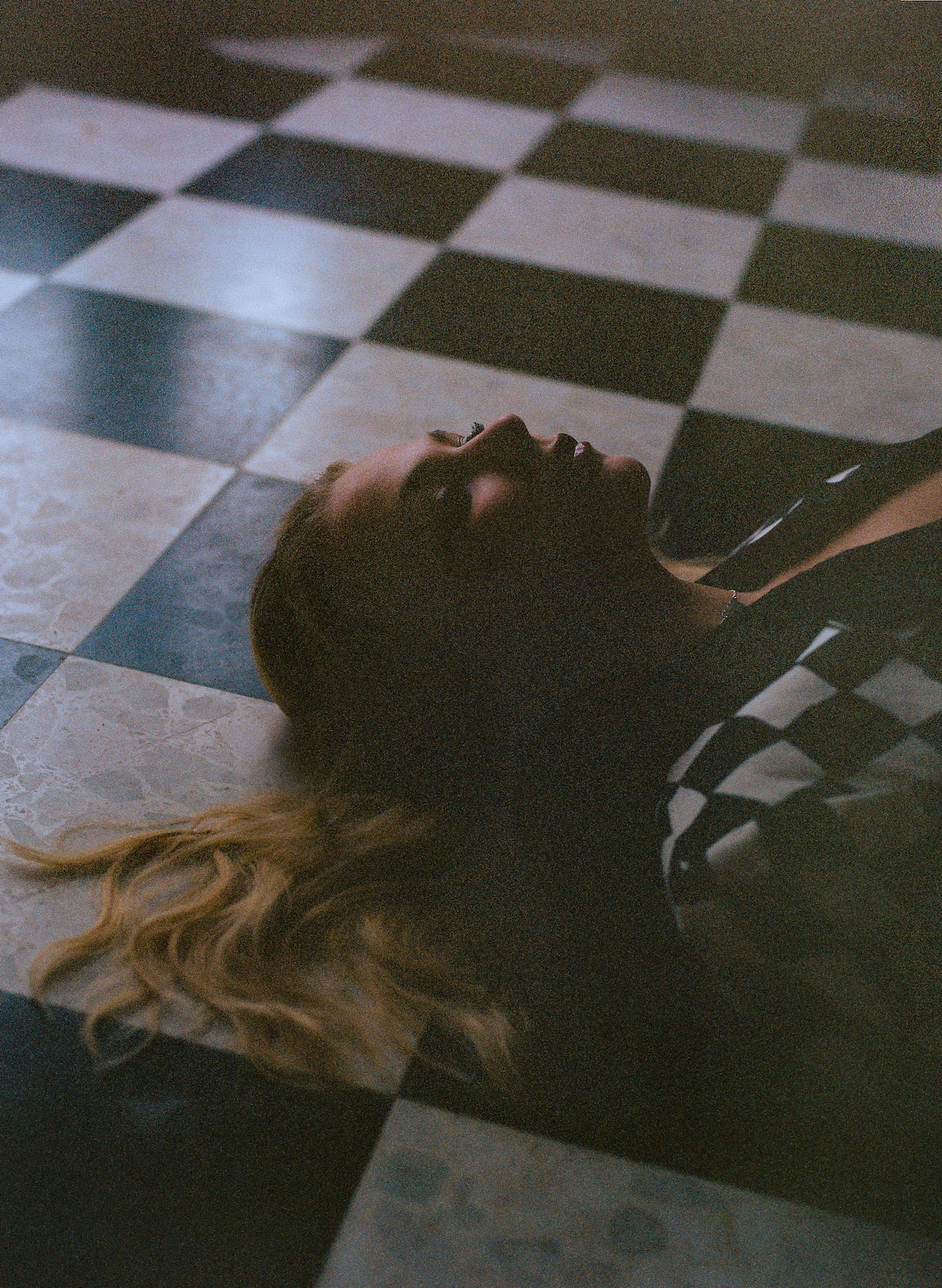
I don’t ever want to work for writing; I want it to work for me. I’m not interested in being enslaved to it; I want it to be what it started out as, which is as a coping mechanism for me.
Arriving after three comparatively short and sweet EPs, Playing the Part of You Is Me is also Savannah Conley’s longest, most artistically definitive statement to date. Working with producer Jeremy Lutito, Conley incorporated elements from the indie rock, alternative, electropop, and Americana worlds to create a singular sound that mirrors the smorgasbord of music she grew up with and continues to embrace to this day – ranging from Nashville’s country scene to the Laurel Canyon, from Coldplay to Kings of Leon, from basement punk, to rap, to spoken word, and beyond.
“It’s definitely the most all-encompassing,” she shares. “Every part of me is in there and every influence is in there. I didn’t shy away – there’s even a bunch of shit that I’m embarrassed about, that I like that’s in there… I just want it to sound like me. We did very minimal vocal takes. A lot of the songs are one take vocals and no tuning. I just wanted it to be accurate.”
Accuracy, to Conley, means intimacy: It means pouring herself out in songs that reflect her raw, unabridged humanity, and telling stories that are all too close to the heart. It means singing her heart out to achingly confessional lines like “I need some help but I can’t help myself” (from album opener “Help Myself”), “I want to twist myself to turn into someone who deserves you” (from “Contortionist”), and “How do you expect me to express any feeling, when nothing that you give to me feels anything like feeling?” (from “Don’t Make Me Reach”). Some of the emotional wounds are a few years old at this point, but many of the scars are still fresh; admittedly, that’s when Conley makes her best work.
waking up i’m no good today
tried to call, threw my phone away
i can’t approach the subject
it’s been so long i just couldn’t
so i’ll wait around til you reach out
like we do
tango takes two of us
tango takes two
i don’t want to fight tonight
i can’t let it go
“sorry i love you” is all that it takes
and you won’t be the first
tango takes two, two of us
– “Tango,” Savannah Conley
“I had a therapist one time say… Because there was just some shit I couldn’t get past. And she asked me, ‘Have you been writing about this?’ And I was like, ‘Yeah.’ And she said, ‘Stop.’”
For as raw and revealing as her music is, Conley always tries to inject a strain of hope and light into her brooding reflections and reckonings. We hear this throughout the album, but it’s especially potent on songs like “I Can See the Future,” “Tango,” and “More Than Fine.”
“Even if it’s just lyrically or production wise, some glimmer, something that makes it not all dark,” she explains. “I call myself a romantic nihilist, ’cause that doesn’t exist. It’s impossible. I know it in my bones that everything means nothing.”
“But if everything means nothing, then we can make whatever we want mean everything. So that’s kind of whatever you want it to be. There’s an element of, I don’t know, you can pick and choose what you dwell on and pick and choose what you make important to you. And I like to laugh, so that’s important to me.”
heart in my throat, ready to run
sweat on my palms, eyeing the door
surely i’m dying, but as it seems
i love you
sat on the water, watching the sun
on the horizon, i saw what was coming
considered lying, instead i said
i love you, and i didn’t plan to
and if you’d touch me i’d let you
i love you
– “I Love You,” Savannah Conley
There aren’t a lot of jokes in Playing the Part of You Is Me, but there is plenty of light and even more love.
Savannah Conley’s debut album hurts like hell, but it’s ultimately a cathartic masterpiece of vulnerable, soul-stirring songwriting and warm, melodic indie rock/pop wonder.
Atwood Magazine sat down with Savannah Conley for an intimate, in-depth interview about her music and artistry. Check out our (admittedly laughter-filled) conversation spanning songwriting, mental health, relationships, and more as we dive into the beating, bleeding heart of Playing the Part of You Is Me.
“I’ve had severe mental illness since I was a kid, and so I think I had a lot of shit to deal with early on that just kinda made it to where I had a choice,” Conley explains. “I can either choose to be miserable, or I could choose to find my own way of dealing with it, and that was what I picked; I chose to laugh and I chose to love storytelling, and I chose to love the things that I love, but it was an active choice. You have to actively choose what you love, because it is a choice, and that I’ve had to make it every day my whole life, so I’m not gonna stop now.”
— —
:: stream/purchase Playing the Part of You Is Me here ::
:: connect with Savannah Conley here ::
‘Playing the Part of You Is Me’ – Savannah Conley
A CONVERSATION WITH SAVANNAH CONLEY

Atwood Magazine: First of all, Savannah, congratulations on your upcoming debut album. I know this is such a long time coming. What does it feel like to finally be closing in on that finish line?
Savannah Conley: Terrifying, exciting, relieving… I almost try not to think about it because it’s all of those things at once. I almost try to distract myself to be like, “Oh, it’s not happening. It’s not… ” No, I’ve been just busier than I’ve been in forever and I literally think that it’s just to distract myself from the excitement and the fear, both. So it’s like all of those things. It’s like any other really good and exciting thing. It’s super exciting and terrifying. I’ve never been married, but what I imagine when you’re looking forward to your wedding or whatever and you’re like, “Oh, this is gonna be great,” but also I’m fucking terrified… It’s like I’m getting cold feet.
There's just so much that's built up behind it.
Savannah Conley: Right, right. It’s a lot of planning, obviously, and then this is my first record. So it feels like a lot of pressure, but at the same time, it’s… We did it to where… We took over a year to record it, and so we did legitimately everything that we wanted to do, which is like… It’s such a relief because there’s nothing to fall back on. You can’t be like, “Well, I could have done this, or I could have done that,” or whatever. But it’s also just then, once you put it out, it’s exactly what you meant for it to be, so when people criticize or like it, they’re definitely criticizing or liking you. [laughs] There is nothing that I was like, “Oh, someone pressured me into this,” or “I wish I could have done this differently.”
You released several EPs before this full-length record and each one… Going back to one that's not even available anymore online, there's several years’ worth of songs already in your catalog, but how does this album compared to those past releases?
Savannah Conley: I mean, I was very young releasing all of those things, and I’m still proud of them. I know a lot of people that are like, “Oh, I hate everything I did.” And I’m never fully pleased with anything I do – that’s just how I am.
The first EPs are definitely still me. I feel like if you’re growing as a person, then you should be growing musically, and if you’re growing musically, then you probably should be growing as a person, too. Both coincide, and if you’re doing poorly, then chances are you’re making weird musical choices, too. There is the offshoot of like, you’re doing super poorly and you get good songs out of it, so what the fuck do I know, and I’ve definitely done that, but I think growth happens, and if it’s happening naturally, then your music should be growing naturally, too.
In my life, my thing that I’ve struggled with really bad is boundary setting or sticking up for what I believe in, or believing in myself in general. I think that shows musically, too. I was very passive in the beginning – I was 19, 20 when I started doing the EP that you’re talking about, the first one, I was 18, and I let anybody tell me what to do at that point. It was still me and I was so proud of it, but that continued and it slowly got to where I was like, “Oh, fuck this. I’m either gonna never do anything that’s fully me, or I’m just gonna…” I’m always afraid of being bitchy or too hard to work with, or I always wanna make a fun environment to work in. And so it’s always been my priority for people to have fun and enjoy being in that space. And so I was very focused on that instead of focusing on what I wanted the music to sound like fully. This was the first time that I was like, “Alright, I’m doing it.” And then I just got lucky that Jeremy Lutito, the producer, and I just aligned immediately. So there wasn’t even any push and pull, it just worked. He just listened to me without having to be like, “This is how it’s gonna be.”
It seems rare when that chemistry happens. I've heard way too many stories of artists relenting their vision to the producer's desires.
Savannah Conley: No one that I’ve worked with has been even close to that. They’ve all been amazing people and amazing producers. And we’re still tight. Every producer I’ve ever worked with, I have no bad blood between anybody. It was a me thing. It was a me thing of me being like, “Yeah, that’s awesome,” and me being like, “Oh, I should’ve said something. I should’ve said something.” So you can’t expect someone to read your mind. That’s just not gonna happen. And so that was the growth for me was not expecting people to read my mind and sticking up for the thing that… No one creatively has ever squished me or tried to be dominating in any serious way.
It's finding your own voice rather than somebody else suggesting what your voice might be. Part of that is the empowerment we gain from growing up.
Savannah Conley: Yes. For me, not doing that took the pressure off because it was like, “Okay, well, then this is not fully me so I don’t have to stand by it.” If people don’t like it, then it’s like, it’s more than half not me, so there’s no skin off my back. But then it was like a weird self-protection mechanism almost to let someone else have the reins, but now it’s like, I either do it or don’t. So here we are doing it.
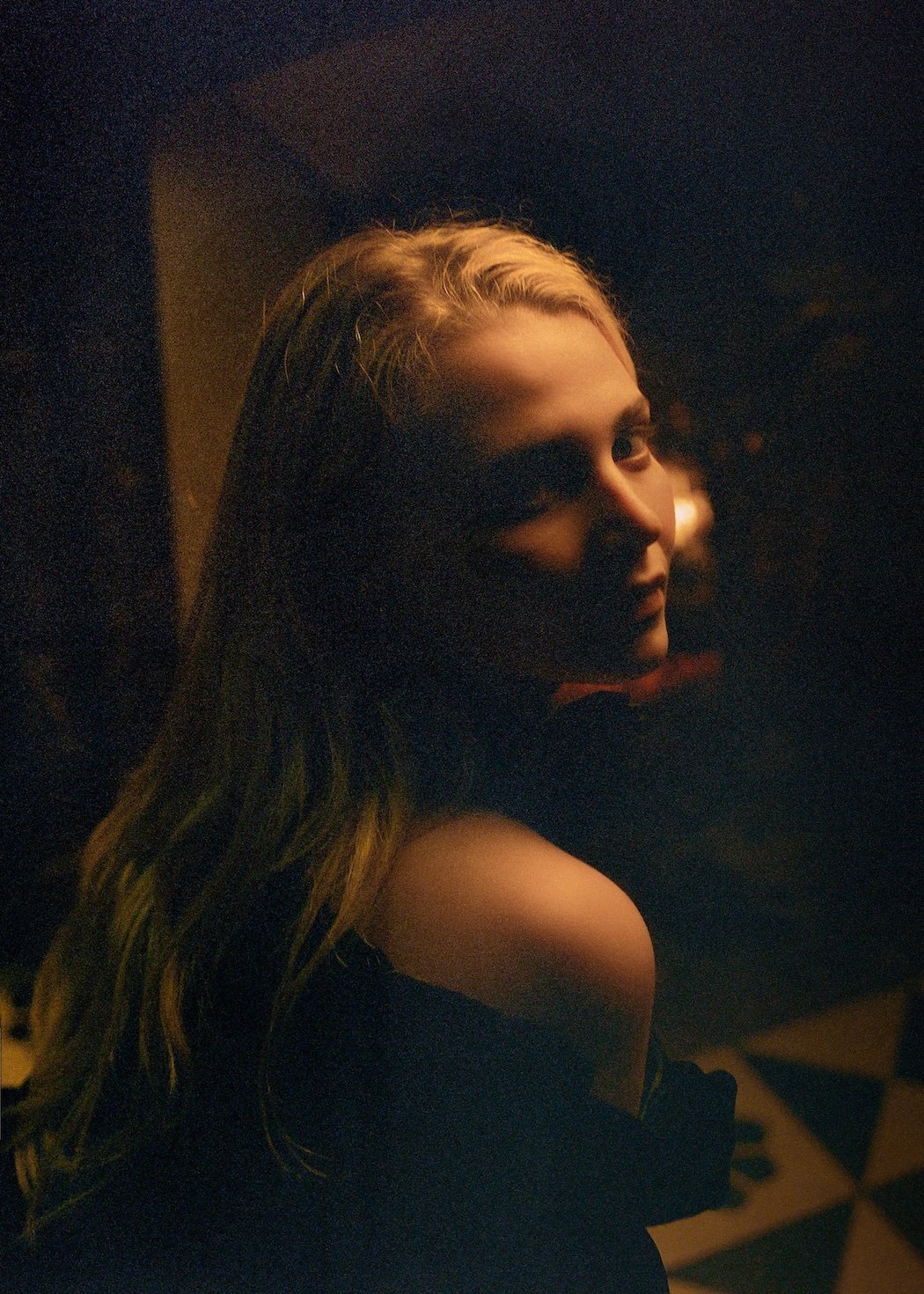
ON MAKING THE ALBUM

What did making an album free you up to do in terms of that kind of experimentation? Did you feel more free to not try to make a hit song every time?
Savannah Conley: To be honest, something that I have really been adamant about and that I have in myself succeeded in is, when I’m writing, and then in the studio, the term “hit song” never crosses my mind ever. It’s just not something that I’m interested in. I have the same mentality for that as I do for plastic surgery. If I let myself fix something on myself, I’d fix everything. And so when in the studio, if I let myself think about all of the things that I could change to make it more palatable for whatever, or more marketable for whatever, I’d change out all of it. So I can’t let one thing come in and… It’s like a dam. It’s like if you have one perforation, it just all falls part.
Does that apply to songwriting though? So if you have a song that isn't quite working, are you gonna keep working at it or are you gonna throw it away and start on something new?
Savannah Conley: I’ll usually abandon it. I’m not a huge… I affectionately call it, I’m a vomit writer. It’s very much like that for me. Even down to when you have to throw up, you feel sick, and then you throw up, and then you feel better, that’s what writing is for me. [laughs] I feel shitty, and then I write, and then I feel better. And that kind of… Yeah. I know people that will do co-writes that last hours and hours and hours and hours and that is my literal nightmare. I cannot do that. I’m too antsy. I have to be going all the time and I have a lot of interests and stuff. And so I can’t be in one room all day.
This is an 11-track album. Is it 11 tracks out of 50, or is 11 tracks out of 15?
Savannah Conley: It’s 11 probably out of 30 or 40.
For so many artists, their albums are the compilation of the best ten songs out of 100+.
Savannah Conley: Yeah, that’s not me. That is not me. I can’t imagine myself being that prolific just because… I mean, it comes down to antsy-ness for sure, but also the part of my brain that writing exists in, it sounds melodramatic, but this has kind of been my whole life… It’s always felt like dicey territory writing of being like, “Okay, this is where creativity lives, but it’s also where all my mental illness lives.” So I’m very much scratching, I’m knocking on the door of it. And so it always felt very dicey of being like, “Well, I could spend all day writing, and then pay the price for a month, [laughs] or I could get it all out of my system, take a break, come back and let it do its job, let the writing do its job in my mind, in my life.” I don’t ever want to work for writing. I want it to work for me. I’m not interested in being enslaved to it. I want it to be what it started out as, which is a coping mechanism for me. And that’s something I don’t ever want to lose.
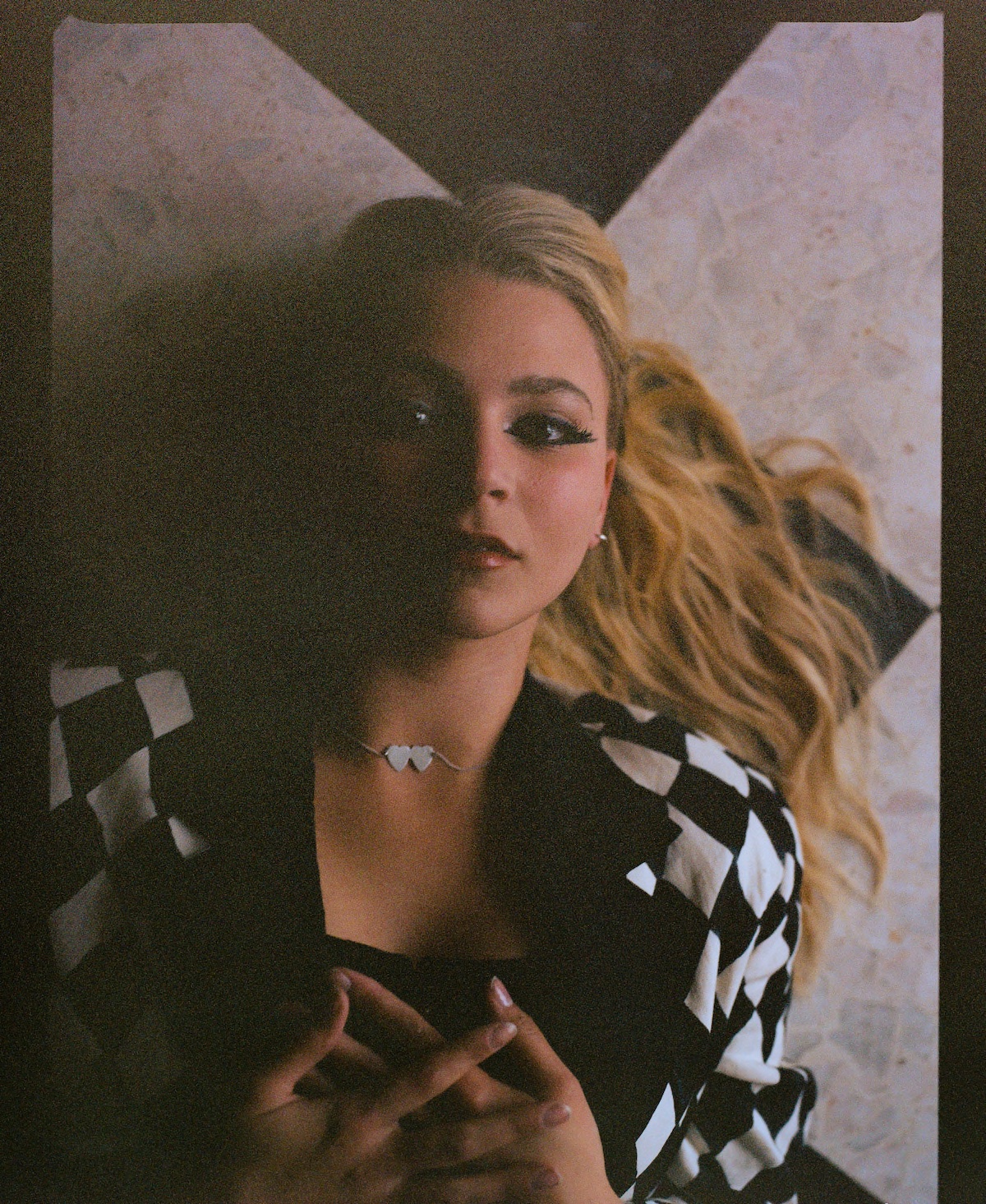
Does that mean that songwriting is an emotional experience for you?
Savannah Conley: Oh fuck yeah. Yeah, it’s not fun [laughs]. It’s not like a fun activity for me. Writing is not crazy fun for me.
Is it therapy?
Savannah Conley: It’s coping. I’m a very logical person, but I am also extremely illogical and I’m naturally wired. My parents are extreme opposites. My dad is devoid of logic and my mom is hyper-logical. And I have both. So I’m extremely logical in my natural wiring, but then I also have fucking huge feelings that demand less logic, [laughs] that I can’t logic my way out of. So that’s where it comes in of being like, “Okay, I can’t reason my way out of these, so I have to do something else, and that’s where writing started happening for me.
I'd love to hear about what your vision was coming into this album in terms of what you wanted it to sound like and how you ended up finding that sound.
Savannah Conley: Right. I mean, both of my parents are music and my dad is in Country but I mean, listen to everything growing up. And then I had the classic cool cousin that knows everything, knows all the cool shit. And so he would burn me CDs and stuff. And so, my taste was super eclectic as a kid. It was really all over the map. I don’t know, I loved everything. I was a huge… I mean mainly when I was 8 my cousin showed me Coldplay, and then when I was like 10, he showed me Kings of Leon, and that Indie Rock scene in the early 2000s, mid 2000s mainly. That blew my mind. I had never heard anything like that. And then when I found out that a lot of them lived here in Nashville, I was like “This is the greatest moment of my life.”
Up to that point, Nashville was very much country, but honestly I didn’t really have a concept of that. That was just what my dad did. I didn’t really… That wasn’t all music was to me. I think a lot of people assume that Nashville is like country music and if you are country music, you are only country music. But I mean, my dad listened to everything. His job was country, sure, but at the house it was everything. And he’d roll up at home blaring our local rap station nine times out of 10, late at night. And I’d hear it out my window or he’d roll up listening to Lynyrd Skynyrd, whatever, it was all across the board. And then my mom is very pop-heavy. And so I got all of the things. I think the Americana thing is tough because I got into Emmylou Harris, The Band, Laurel Canyon, all that shit in high school. And it rocked my world. I was like, “This is insane.” And it really, definitely influenced my writing. I’d always loved Dolly, I’d always loved that classic country stuff. I’m from fucking Nashville, of course it’s gonna seep in.
But that Americana EP, the first one that you were talking about earlier, that was in my mind. When I made that EP, I was like, “I’m gonna try something. I’m just gonna try something now and see what it’s like.” And accidentally that was the EP that got everything rolling. So that style of music, that production style was a blip on my radar. I had never made music like that in my life. That was not something that I was… I was going to basement punk shows every night. That was my scene.
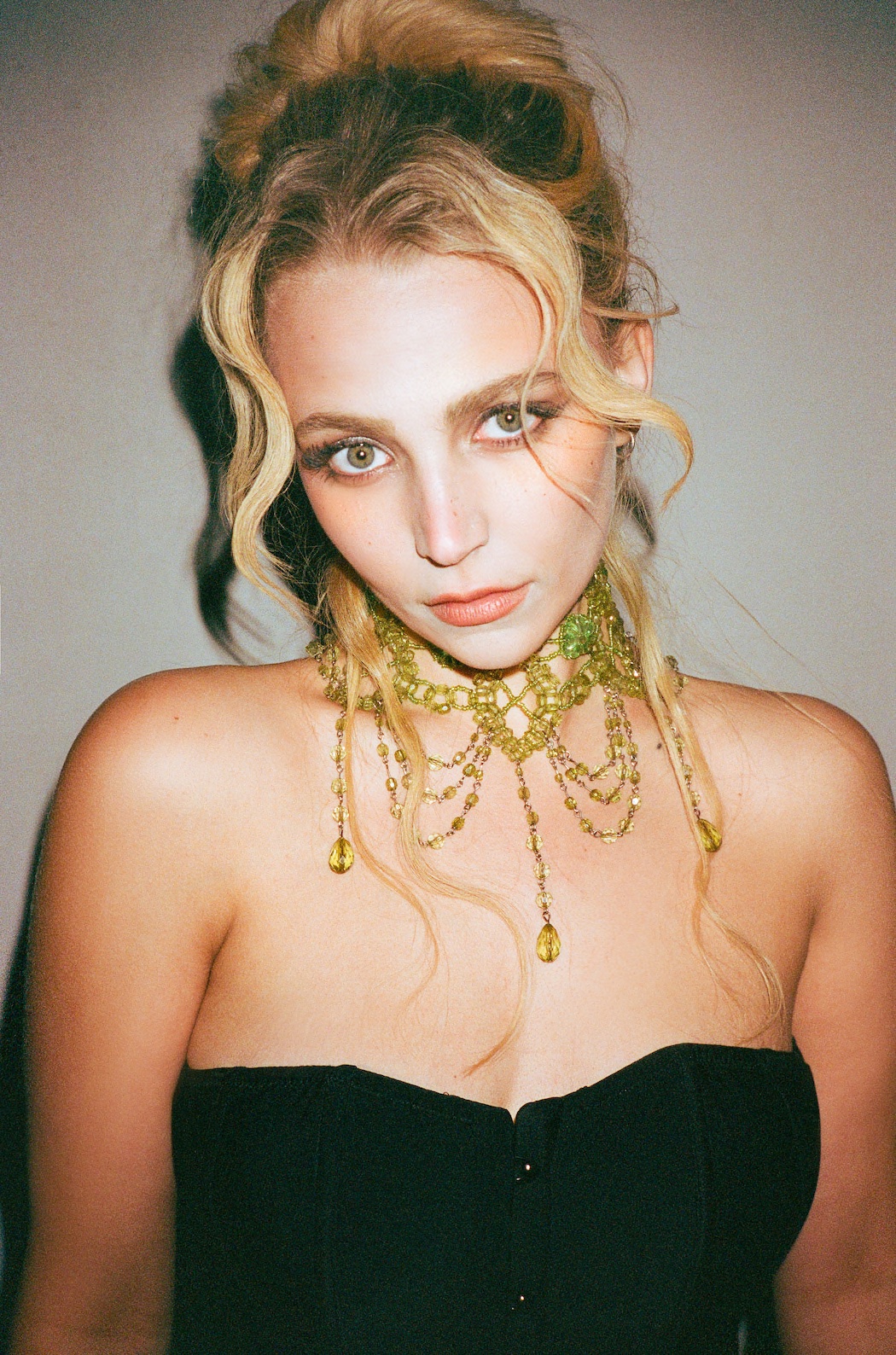
Have you been making music for years just for yourself and for friends?
Savannah Conley: Yeah. And I mean, I’m making music with my dad, and we would experiment on all kinds of stuff and with my friends, and yeah, that EP I did do with my dad, and we just kind of were like, “Let’s try an Americana thing.” And these songs are leaning Americana that I was writing, so he was like, “Yeah, let’s just try it out.” And so we did. And then I was like, “Yeah, this works. This is what these songs call for.” Never in my life did I imagine this would be my identity. That was not something that ever crossed my mind. I didn’t think that was a thing. I didn’t think you had to have an identity. I thought you could just kind of do whatever you wanted and then do whatever you want again. That was how I viewed it. I mean, I was fucking 17, so what the fuck did I know? But at that point in my life, I was putting together shows in Nashville, and the first artist on the bill would be an Americana band. The second would be a punk, third would be a rapper and the fourth would be spoken word. So that was my world at that point. I knew nothing about genre specificity or it just didn’t make sense to me. So when we did that, it was like it did turn out Americana, but it didn’t feel like my identity. And then once major label got involved, all that classic story of, like “Well, tough shit. This is your identity.“
Why the title Playing the Part of You Is Me?
Savannah Conley: Oh, I’m gonna give you a seemingly bullshit answer but I kind of don’t wanna say what it means to me, ’cause I kind of want people to just take what it means for them. ‘Cause that’s kind of the point, that kind of gives away what it means. It’s pretty much straightforward, I want people to take the songs and make them mean what they mean to them, without me coloring what they mean to me.
Given everything we've already talked about today, how do you feel Playing the Part of You Is Me reintroduces you and captures your artistry?
Savannah Conley: I think it’s definitely the most all-encompassing. Every part of me is in there and every influence is in there. I didn’t shy away… There’s even a bunch of shit that I’m embarrassed about that I like that’s in there. I was just like, “Leave it. Leave it in there.” Because I just want it to sound like me… There are some choices in there that I would’ve shied away from years ago and been like, that’s like to me. That sounds like what I sound like when I’m talking to my mom or like… And so there were all kinds of those things that I was like, No I’m leaving it. We did very minimal vocal takes. A lot of the songs are one take vocals and no tuning. I just wanted it to be accurate. That was what I wanted.
ON THE SONGS

Is that your dog barking at the very start of the album? Why do we hear him first?
Savannah Conley: Yes. [laughs] Well his name is Leo and he is an Australian Shepherd Poodle Mix. I got him when I was 19 and he’s been through it with me. All of my 20s, he’s been there. So he is 7 now, I’m 26. So yeah he’s been in the mix and that bark in the beginning we used… I don’t think I’ve said this yet. In the very beginning of the record, what you hear is his bark. And then we used the voice memo from when I recorded the demo for the song… For “Help Myself.” And you hear his bark and then you hear rustling. And that’s me strapping my phone under my bra strap to record the demo. So that was… The voice memo was what I sent to Jeremy that he was kind of like, We need to do something with this. And it just felt special. It felt like you hear the piano… We didn’t even plan it like this, that you hear the lid of the piano that I recorded the demo on open in the beginning and then at the end, you hear Jeremy shut his piano lid. And we didn’t do that on purpose. So that’s the first song on the record. It opens and then on the last song, you hear it close.
I already had all of these songs written, so it wasn’t like I was writing for a record or filling space in a record, or we put these songs together and they just fit. They just worked. Originally, it was going to be an EP, and then I had all these other songs that we listened to that I showed Jeremy for fun. And we both were like, “Fuck, I wish we could make a record.” And then we were able to make a record and so we just added the songs that I already had. So it was like so much of it was accidental. I mean that illustrates the record perfectly that we didn’t plan it, where the piano opens and closes at the end. That’s exactly how the whole record happened. Where we both were like, “How is this working?” “I don’t know, but let’s keep going.”
Do you feel like this accurately captures what you would want your debut album to be?
Savannah Conley: Yes, I do, which is absolutely terrifying. It’s just putting your all your shit on display.
Savannah Conley: It was the first song Jeremy and I worked on together. And so it felt like that song, in a lot of ways, felt like the beginning of a lot of things. When I wrote it, it was the beginning of me getting over a completely ridiculous situation. And that writing that song, was kind of the last breath. It was the exhale of that relationship, the dying breath, if you will. Where I was just exasperated. I wasn’t even heartbroken anymore. I was just exhausted. I was so like that. That’s why I like story of my life. People say that, and I honestly hate that phrase when people say it in conversation when they’re like, “Ugh, story of my life. That annoys the shit out of me.” But that’s where I was. I was so annoyed that I wanted to say something that annoyed me. I wanted to say something that I myself am annoyed by, because I was so annoyed. And I was annoyed by really dark things that had been happening so often that it wasn’t even dark anymore. It was just annoying.
It felt like the end of that relationship which was a long, long time and not basically everything prior to that, lyrically had come from that relationship. So it felt right to open it up with the closing of that situation. And then also it was the first thing Jeremy and I worked on together, so.
The chorus line really struck me: “I need some help but I can’t help myself; always better fixing someone else.” You’re telling this story of being there for another, but no one is necessarily there for you. Is the ultimate message one of learning to be your own savior, so to speak?
Savannah Conley: I mean, yeah, the funny part about that chorus is that that chorus lyric is the only lyric on that song I didn’t write, and it just fits so perfectly. I was so stuck in that song, and Trent Dabs, who is one of my consistent writing partners, I brought him all those verses and he just said it. He was like he was at the piano and he was like, I need some help, but I can’t help myself. He’s like, that’s you. He’s like, that’s what you’re talking about. That’s what you do. He was like, you help everybody and you can’t help yourself. And it was just so perfect that it wasn’t even me that said it. Like it was him that had the wherewithal to know what I was saying when I didn’t know what I was saying.
Again, I didn’t really do it on purpose, but like, that has been a big thing I’ve been working on, on myself is admitting that I have needs as a human and admitting that I’m not invincible… I don’t really think it’s super linear on the record of being like, I was weak and now I’m strong, but I think my main goal in that time period was, and still is, becoming okay with the ebb and flow of everything. You’ll be doing really great and then you’ll be doing really horrible, and you’ll be doing really great again and you’ll be doing really horrible again. It’s all going to come and go, and I think that’s the thing I wanted to show in the record – of it being just a lot of this.
You introduced the album last year with “More Than Fine.” Why choose to begin this album's story with that song?
Savannah Conley: I think it was the only one that was like a little… To be honest, it was the only one that had a little bit of positivity to it. And it’s the funnest one on the record lyrically. And so I kind of didn’t want to just come out blazing with… With I don’t know, I’m sick of sad to be honest, if I could write something else, I would. But “More Than Fine” was like the only opportunity on the record to be like, okay, well, this is not… It’s like a posturing song. It’s like, it’s not deep dark. It’s not like, in the depths of… It was literally who I wish I was when I was writing it. And so it felt fun to start with that one and at that point I was like I want to start fun because there’s not a whole lot of more fun to come so let’s just start out with the fun part.
“When everything is falling apart, you’re the only thing that stays the same.” I love the epic, cathartic release of “Muscle Memory” – especially in the breakdown, where you sing, “I only needed a moment to float away.” What is this song about, for you? Can you talk about the moment recording that ending?
Savannah Conley: Yeah. The relationship that had ended resurged during the pandemic. It just was normal and it was comfortable and it wasn’t healthy. But sometimes healthy doesn’t feel comfortable. And at that point, I think everyone was just grasping for things that felt normal. And so even though everything about that relationship was abnormal, it felt comforting in that moment because everything was falling apart and he was the same shitty person. So it was comforting that he was still the same. And so it was, yeah, I think, and you always have people that you see them and your body responds before your mind does. And we had been together so long that we saw each other and my body immediately was like, oh, I wanna hug this person, even though I hate them. So that was where that was from, was I went home and I was staying with my parents at the time ’cause it was quarantine and we had been outside And just… ‘Cause all my family lives on like one block of land basically, along with my ex’s family, which is not so awesome.
And so we all like had this bonfire thing where everyone was apart. And that was when I went home and I made the demo in my parents’ guest bedroom and my dad kept calling it studio B. I like had all my shit just spread across their whole guest bedroom for months during the pandemic. He has a whole home studio, and I was like, “No, I’m not gonna use your studio.” So I had studio B.
“Contortionist” is another one of my favorites. It kind of snuck up on me, but the line, “I want to twist myself to turn into someone who deserves you. I want to be the girl who loves you.” To me, it sort of completes the arc of these first three songs, if there is one. Can you describe the song for you from your perspective?
Savannah Conley: You think you’re not deserving of a relationship or a person – and it could be a friendship, it could be a job, it could be like whatever – but you feel unfit and for whatever reason. And I saw the version of myself that was fit and I couldn’t be that. I couldn’t like… I couldn’t allow myself, and it turns out it was a good thing, but at the time I just felt like I was just twisting. And I mean, I really did. Like I felt physically like I was like legitimately making myself smaller. And like, just even in my posture, I would notice that I would just be like, I’m already short as fuck. So like, as if I need to do anything like that like, but I just noticed that I was bending, I was bending myself and twisting myself and contorting myself into something that I wasn’t. And even though that was something that I thought I could want, It’s way better to not do that.

Thank you for sharing so openly about these songs. I can't imagine it's necessarily easy to dredge up the past.
Savannah Conley: Yeah, I had a therapist one time say… Because there was just some shit I couldn’t get past. And she was like, “Have you been writing about this?” And I was like, “Yeah.” And she was like, “Stop.” Like, what the fuck kind of advice is that?
Because the more you write about it, the more you dwell on it. And then it reminds you of it.
Savannah Conley: It’s fodder. It’s material at that point. Like there was a time where my schedule was way too full with co-writes, which I don’t do anymore, but I would get there and I would be like, well, I have nothing to write about except for this absolutely dramatic thing that I’ve written about five times, She’s like, go ahead, let’s just talk about it some more. So it’s not always the best… It’s not always coping. Sometimes.
Sometimes it's a self-fulfilling prophecy.
One of the songs that instantly stood out to me is the rocker “To My Innocence.” This one is a bit more savage than most of the album’s tracks, and it’s far more unapologetic. Where does this song fit on the record for you? Like what space does it occupy in your mind?
Savannah Conley: I mean, I was pissed at Trump. I was pissed at Trump and I was pissed at my grandparents… The Capitol riot had just happened. I mean, everyone was pissed. I’d had a conversation with someone who had opposing views. And they were like, “We’re saying the same thing.” And I was like, “No, we’re not. We are fully, fully not.” I think I was more pissed about the feigned understanding by both sides and like the feigned empathy… It was just all fucking fake and I was pissed.
Do you have any personal favorites on this record? Like if somebody could listen to one song in this record, which song would you want them to hear?
Savannah Conley: Probably “Don’t Make Me Reach.” It feels the most inclusively me. I just always, for my own sake when a song falls out that way, I don’t have to dwell on it and make myself miserable about it, and I wrote that one in like 10 minutes. So it’s very purely me, like it’s just more enjoyable for me that way where I can just be like, and then it’s like, “Oh, well, there we go.” That one has humor in it, which I always like to do ’cause it makes it a little more palatable for me to be depressed or whatever. It’s just pretty indicative of my personality, I think, for good and bad.
What do you hope listeners take away from that song about your personality?
Savannah Conley: I don’t take anything too seriously. Like, even if it’s like… That was like one of the darkest times of like a long time. And I’m still cracking jokes ’cause what else are you going to do?
i want to drive across the country
make you remember why you love me
make me remember why i stayed
maybe if you could read my lips
you’d feel it pulling you back in
and i wouldn’t have to reach so far
don’t make me reach so far
don’t make me reach so far
don’t make me reach so far for you
That one has humor in it, which I always like to do ’cause it makes it a little more palatable for me to be depressed or whatever.
So on a record that delves deep into emotionally difficult territories, mental health and illness and vulnerability… don't take life too seriously.
Savannah Conley: Honestly, ’cause why? Why? Like, everything is already so, like, heavy. So if you’re gonna treat it all heavily while you’re already internally heavy, it’s fucking miserable. And then we’re just gonna make each other miserable. So at least laugh in the process. And I always hope that there is… And I don’t try to do this, but it’s always in the back of my mind that I hope every song has at least a tiny kernel of hope in it. Even if it’s just lyrically or production wise, some glimmer, something that makes it not all dark. But also, it sounds too fucking pretentious to actually mean it, but I also actually mean it.
I call myself a romantic nihilist, ’cause that doesn’t exist. It’s impossible. I know nothing means anything. Like, I know it in my bones that everything means nothing. But if everything means nothing, then we can make whatever we want mean everything. So that’s kind of whatever you want it to be. There’s an element of, I don’t know, you can pick and choose what you dwell on and pick and choose what you make important to you. And I like to laugh, so that’s important to me.
First of all, the title of this interview is “I'm a romantic nihilist.” Is that something that you've learned over the years that you would say, maybe from some of these relationships that come up in the record that brought you to that conclusion, or is it something you've kind of always felt?
Savannah Conley: I’ve definitely always felt it. I grew up with a lot of mental illness. I’ve had severe mental illness since I was a kid, and so I think I had a lot of shit to deal with early on that just kinda made it to where I had a choice. I can either choose to be miserable or I could choose to find my own way of dealing with it, and that was what I picked; I chose to laugh and I chose to love storytelling, and I chose to love the things that I love, but it was an active choice. And I think that’s when it started, was like, you have to actively choose what you love because it is a choice, and that I’ve had to make it every day my whole life, so I’m not gonna stop now.
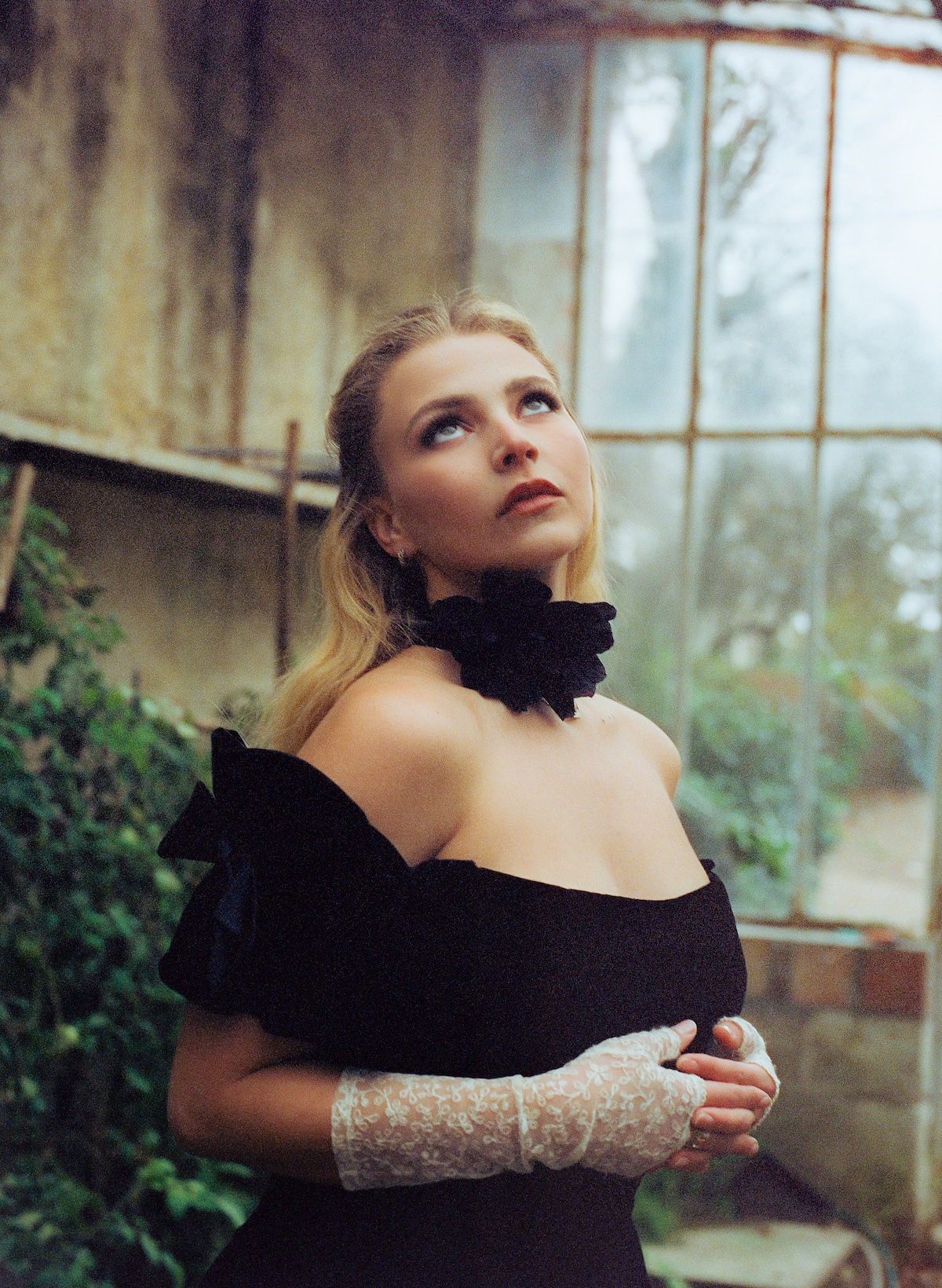
ON MENTAL HEALTH & ILLNESS

I wouldn't ask if it weren't pertinent to the music that we're talking about, but do you mind sharing a bit about your experience with mental illness?
Savannah Conley: Yeah, sure. I’ve had severe anxiety disorder and panic disorder and depression since I was six, and OCD. You don’t have to list all of those. You can just say a myriad if you’d like, but yeah, when I was six was when I was diagnosed, I was put on medication when I was six and just very… At that point, they didn’t know a whole lot about anything like that, so it was a big endeavor and a lot of… Just a lot of stuff, a lot of doctors, a lot of things like that, ’cause it just was very unmanageable and… So I grew up with that as part of my identity and part of who I am, and it became more manageable as I got older, but I had to really work for it, and I think that’s where making the stuff that matters matter to you. There was a big opportunity for me to be like, fuck everything. Why am I made like this? Who said? And to really place blame on, I don’t know, whatever, the world and be miserable, but I’d kinda refused and I still refuse. So every day is, you choose, you choose to be… ‘Cause that’s where the romantic nihilism comes in, it’s like even as a kid, I was like, I am logically and objectively miserable right now.
I am objectively miserable and I am refusing to allow that to take me over and… So yeah, nothing meant anything because it couldn’t. I didn’t have the room, I didn’t have the space. But it’s a choice. So that’s kind of like where it started it for me, and then it’s just stuff I’ve struggled… I still struggle with all of those mental illnesses and always will, but you just learn how to cope, and I’m a big proponent for psychiatric help and therapy and medication when needed, which is a tricky subject, but I think it’s needed about 10% of the time, prescribed about 90%, so. But when you need it, you really need it. So I’m actively a proponent of less prescriptions and accurate prescriptions, but that’s a whole other conversation.
Everyone has their own different experiences, but I can definitely relate to some of what you're talking about and some of the things that you expressed in this music.
Savannah Conley: Thank you, I’m glad. I think that’s where the humor comes in too, because when you have it from such a young age, it becomes innocuous, almost, it becomes… It’s almost banal, it’s so much a part of who you are that it’s almost boring. It’s a boring topic, it’s boring to talk about. It’s boring to think about ’cause you’re just fucking thinking about yourself, and so that’s where the humor comes in, ’cause you’re like, “Fuck this, I’m gonna joke about it because it’s so boring.” When it’s something that is so part of you, that you’re like, come on… I want it to be gone. It just brings up that feeling of being like, “Oh, I just want it to be gone.”
The mental health conversation is so tricky because it is a conversation now more than it ever has been, but it’s not a nuanced conversation, it’s just a blanket conversation, which really bothers me. There’s so much nuance in mental health, and there’s so much specificity, and there’s so much specificity to diagnosis and help and tailor-made help to what you have and who you are and what you need, and you can’t just blanket everything, and it can’t be… You can’t diagnose yourself from TikTok, you can’t get your help from TikTok.
It’s so easy though, but it’s such a nuanced thing and it’s such a personal thing, and that’s where people will say all the time, I kinda get shit in my friend groups of being like… People will be like, “Oh, I’m so depressed.” And I will always push back, I will always say, “Okay, describe it to me.” And of course, if the description is depression, I will be your number one champion, I will be your actual right-hand man in anything you need, but if it’s sadness, that needs to be dealt with in a different way than saying you’re depressed, and… So it’s a tricky line to walk because exactly like you’re saying, a lot of people have anxiety stuff, but depression is a funky one, and it can’t get diluted in… ’cause that’s dangerous.
You're kind of a champion of not misusing the word “depression.”
Savannah Conley: Yeah, language is obviously extremely important to me, and I think in the mental health conversation, like having the accurate names for things is so important, just because it’s not labeling, it’s not to do with an identity kind of conversation, it’s more like, how is this dealt with? How do we find an answer? How do we find a solution? And if we use the same name for every feeling, we’re never gonna fucking get anywhere. If you just said dog for the hundreds of breeds of dogs, you would never know what you’re talking about, because they all look like completely different species, it’s the same fucking thing with depression or anxiety, it’s like there are 100 breeds of anxiety and depression, 100 breeds of OCD, 100 breeds of ADHD, you have to have a specific conversation, you can’t just be like, “Oh my God, I’m so depressed today.” Fucking come on.
It’s a very natural human emotion, anxiety is. Everyone has anxiety. It can get bad, it can become a chemical thing, or you can be born with a chemical thing, I was. And where you’re sitting on your couch with no reason to be in fight or flight, but you’re in fight or flight, and that’s a feeling everyone has, you can just have it an inappropriate times, that’s when it’s a little different, but everybody has had feelings of anxiety, and it’s such a relatable feeling, so it’s so human and necessary for a lot of reasons, but also fucking annoying.
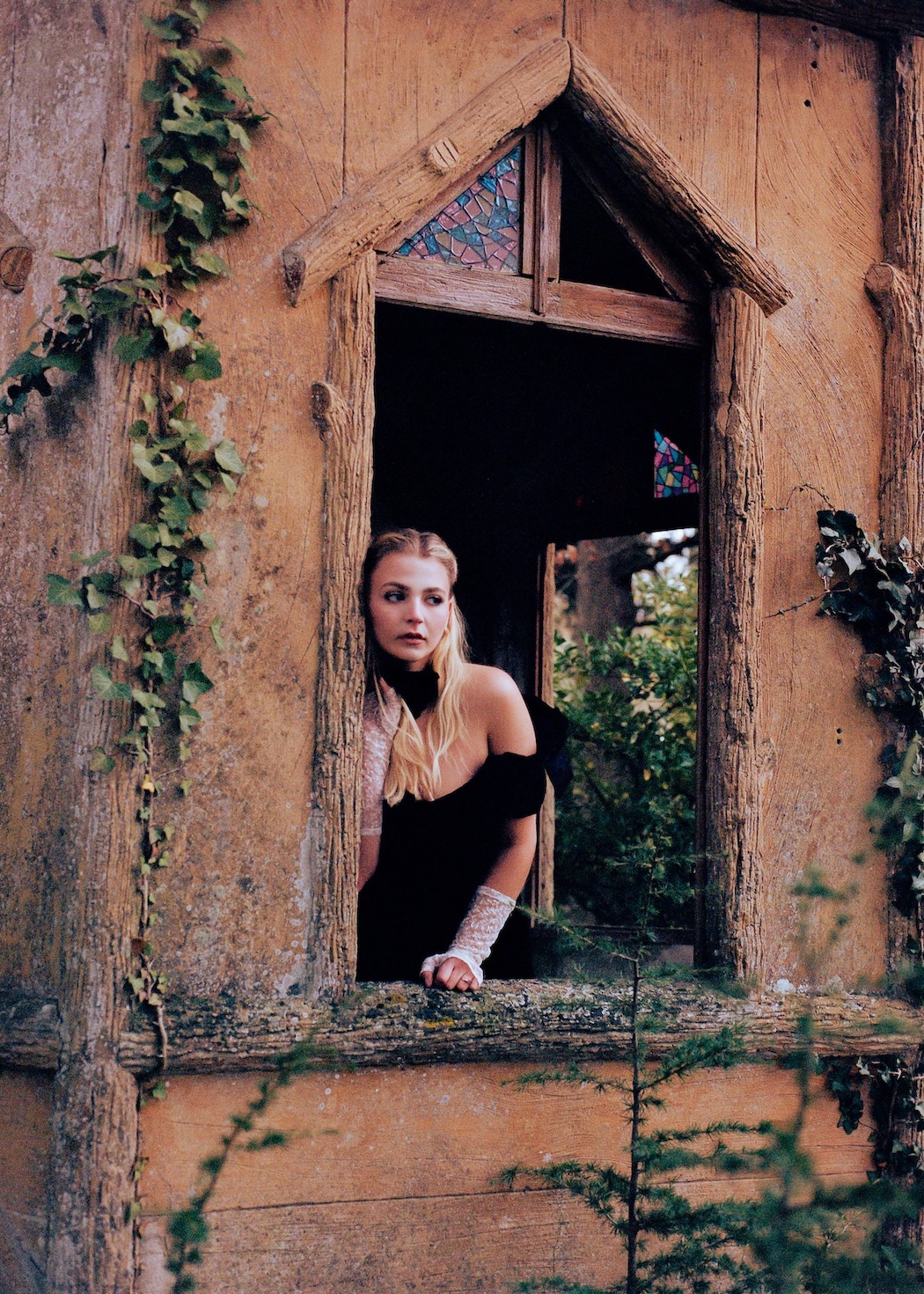
ON SONGWRITING

In an attempt to bring it back to the music, you did say, at the top of our conversation, that writing songs made you feel anxious and kinda gets you in your feelings. What keeps bringing you back to music, if it's literally a trigger?
Savannah Conley: Well, yeah, it can be a trigger. It also, when it’s done, I feel so much better. It’s almost like working out or something, like you feel really bad while you’re doing it, but then once you’re done, you’re like, Oh, I really needed to do that. That’s what writing is for me. My mom, when I was a teenager, I’d be being just such a shithead and she’d be like, “You have to go in your room. You have to write and you have to come out and you have to be better.” And I would. And afterwards, I would be better, and it is definitely a fine line to walk mentally, but it’s also, it’s such an important tool. I think it’s an important tool. I was just listening to a podcast yesterday about the benefits of doing anything creative for anyone, for 10 minutes a day, and the actual composition of your brain. It is so beneficial to the composition of your brain to do something creative, and especially if it’s not for a means to an end. So writing for fun is something I wanna do more of for sure, but writing music is just the most helpful thing for me.
Something as simple as journaling can be so beneficial and fulfilling. I know some people who do this and I think it's really great, but I don't and I'd love to.
Savannah Conley: Yeah, yes, absolutely. I don’t journal either and I should. I get uncomfortable with the amount of times I see the letter I on the page. It makes me feel self-conscious that I’m like, even though it’s literally only for me, I’m like, Oh, my God. I’m talking about myself so much, I’m just thinking about myself all of the time. And yeah, it’s like a weird like… I don’t know, I don’t know. But every therapist I’ve ever had has been like, “I think journaling would be really good for you.” I should, I should do it.
Do you think that you would ever want to write for others so that it's not about yourself?
Savannah Conley: Yeah, I enjoy it. I’ve done it some. I enjoy it a lot. I don’t think I could do it often, and I don’t do it very often, but I like it when I do it.
We talked about your favorite song earlier… Do you have any favorite lyrics as a songwriter that stand out to you on this record, that resonate with you?
Savannah Conley: I don’t know. When I’m asked stuff like that, my immediate reaction is like, “No.” [laughs] Just because it feels like whatever I say is gonna be like, “Well, just look at how much of a poet I am.” Anyone who calls themselves a poet can get fucked, but that’s what it feels like to me. Besides my cousin Eli – he is the only person that can call himself a poet, because he actually is.
Was he the one who turned you on to all those bands too? Does he have anything published?
Savannah Conley: Yes, he is a poet – and yes, he does! Honestly, he’s one of my biggest influences – he’s a brilliant, brilliant writer. He binds books and stuff. I want him to bind his poetry books and I want to sell them at my merch table and stuff, just ’cause they’re so amazing.
link to Eli’s website: elijahlangfordpoetry.weebly.com
But, yeah, I think lyrically, I don’t know. I think there’s not one in particular that sticks out… I have friends that talk about writing where they’re like, “Yeah, I wrote something that… ” They’re like, and I was like, “Yeah, that’s good. Now that’s good.” And I never have that experience, like ever. I just write stuff and then I put it on others to tell me if it’s worth anything. But I don’t know. Jeremy’s favorite lyric is in “Past Life.” His favorite is, “I don’t know how I wound up all tangled up inside, but I think someone out there somewhere had a hand in turning the wine.” That’s his favorite. [laughs]
That's a good line!
Savannah Conley: Thanks. But it was honest! I wasn’t even trying to be clever. I didn’t mean to do that. So here we are. [laughs] Rarely am I trying to be clever.
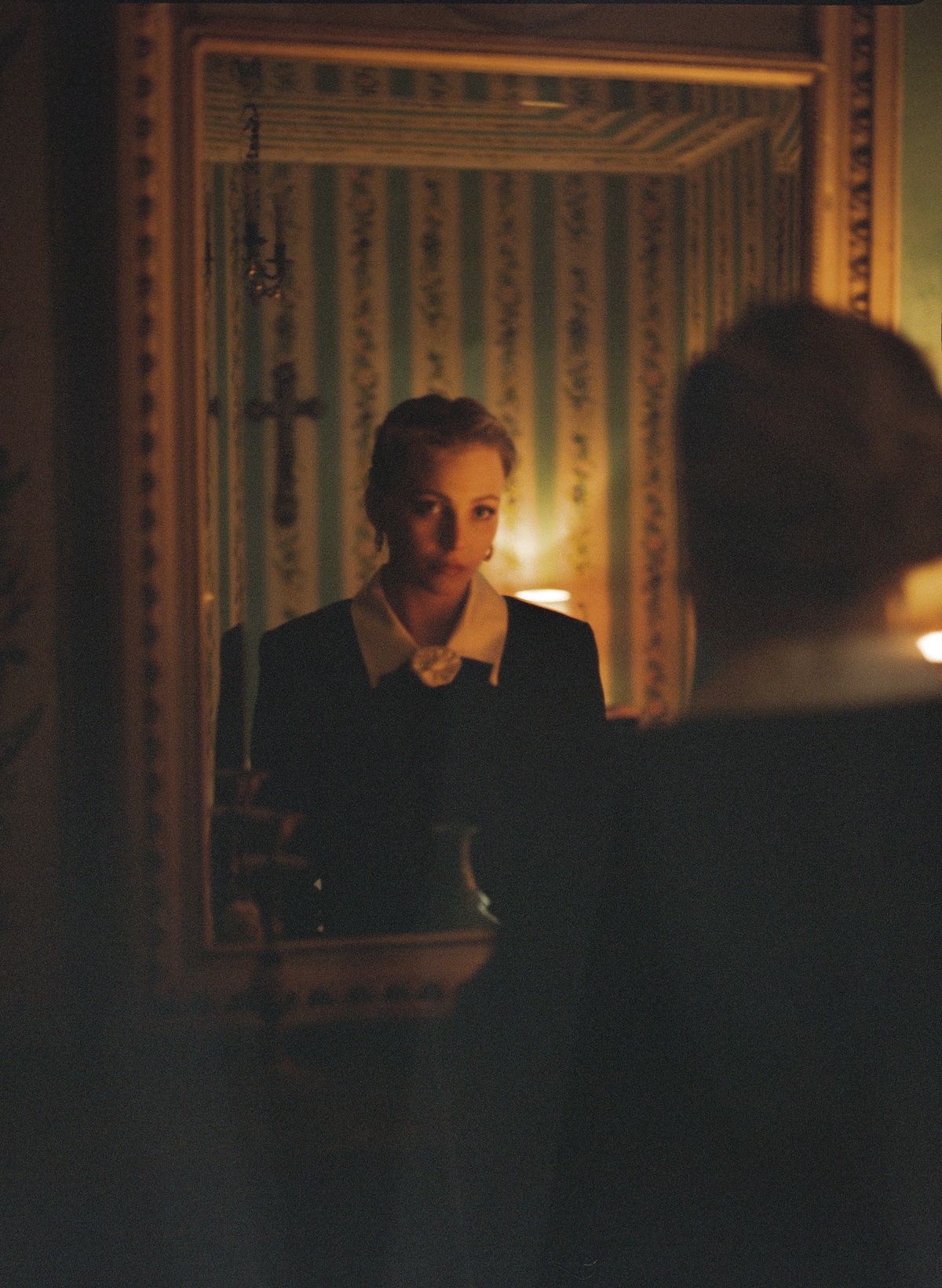
ON IMAGERY

I want to talk the image you've also been portraying throughout the album – in videos, promo photos, and other multimedia. The imagery has been very cinematic. What inspired that visual accompaniment to the record?
Savannah Conley: The whole record felt like pretty darkly romantic to me. And what’s more darkly romantic than a French chateau? So we took three of my friends and went to France, and did all the visuals over there. I think part of me… This record is so honest and so me that I needed something to be a little bit of a removal. Like, I think I would’ve lost my shit if the whole branding and visual campaign was like me in my house with no makeup like the way it usually is. I would lose my mind. I would be like, everyone knows every single thing about me now. So I needed a little bit of separation and a little bit of character-ness to it. And I also just wanted to build a world and build a visual kinda accompaniment to the record to give it some more stuff for people to grab a hold of. And it just worked out to where we were able to do that and able to go to fucking France and rent this chateau, and live in it for a week, and it was pretty magical. It felt magical. And it just felt fitting for the record.
It also takes you out of Nashville. It takes you out of the real world in which it was made, and it does kind of create a little bit of a fantastical element, that's still no doubt relatable. It's not just about you anymore.
Savannah Conley: Right. That was the whole goal. I wanted to make it something that you can make your own instead of it being my story, my experience, my face, my house, my place I live. It was too much for me. The thought of it.
It’s very on brand.
Savannah Conley: Yeah. [laughs] A continuing theme for me. And then I just got so lucky with having friends that are so gifted and so talent… Just Sophia Matinazad who creative directed the entire record and went to France with us. She’s just fucking brilliant. And Jacqueline Justice, who directed all the videos also brilliant, planned the whole trip. She did everything. She did the whole thing and just made it to where I just got to show up and be dressed in pretty clothes, which was like, Okay, can do. [laughs]
Where in France were you?
Savannah Conley: We were about two hours west of Paris for most of it, in this little town called St. George. And then we went to the coast to the Pornic Beaches for the second part of it.
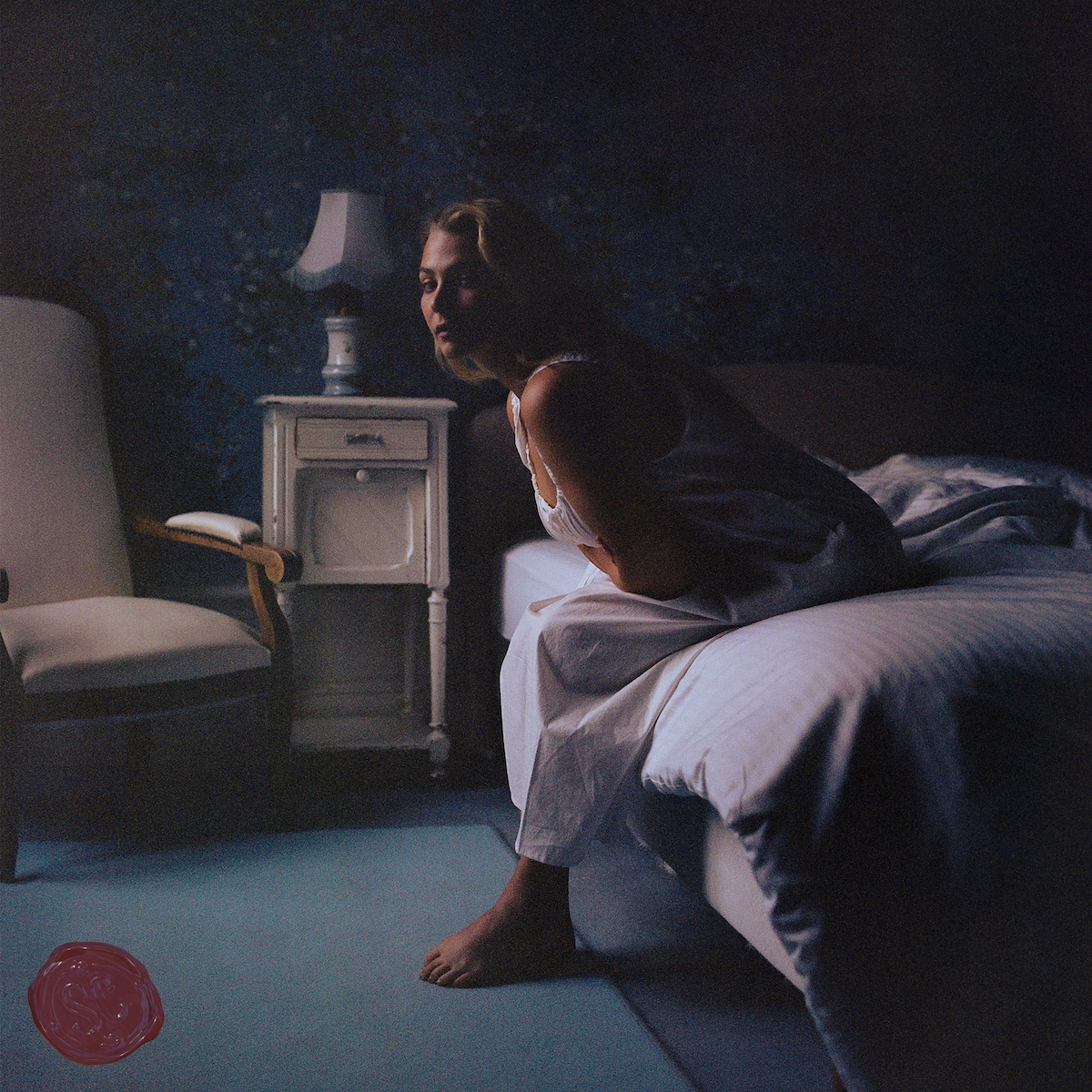
FINAL THOUGHTS & TAKEAWAYS

What do you hope listeners take away from this album?
Savannah Conley: I think with everything, I just hope people relate to it and feel less isolated in their feelings and know that you can have big feelings and still be an active member of society [chuckle], and that it doesn’t have to be so serious all the time, but it also can be serious. And you can take it as it comes and you’ll be okay.
Do you think of this record is an act of embracing those big feelings?
Savannah Conley: Yeah, I think that’s what writing is for me, a lot of it is just deciding to not ignore the big feelings anymore, and owning them.
What have you taken away from now putting it out?
Savannah Conley: Not totally sure yet. [laughs] There’s an element of loss of control when you put something out that you can’t control what happens after that; you can control what happens in the writing space, in the studio, but you can’t control anything that happens after that. So there’s almost a hands-up quality that I’m really not good at traditionally, [chuckle] and so I think it’s a lot of that, just knowing that I did exactly what I felt like I needed to do, and hoping that it does something for somebody else.
In the interest of paying it forward, who are you listening to these days that you would recommend to our readers?
Savannah Conley: Blondshell. She’s popping off right now, but I feel like she’s not that unknown now, but I think she’s so fucking good, and her record comes out this month. Also Why Bonnie and Madi Diaz, she’s fucking great. There’s just a lot of women making amazing music right now.
— —
:: stream/purchase Playing the Part of You Is Me here ::
:: connect with Savannah Conley here ::
— — — —

Connect to Savannah Conley on
Facebook, Twitter, Instagram
Discover new music on Atwood Magazine
© Sophia Matinazad
:: Stream Savannah Conley ::

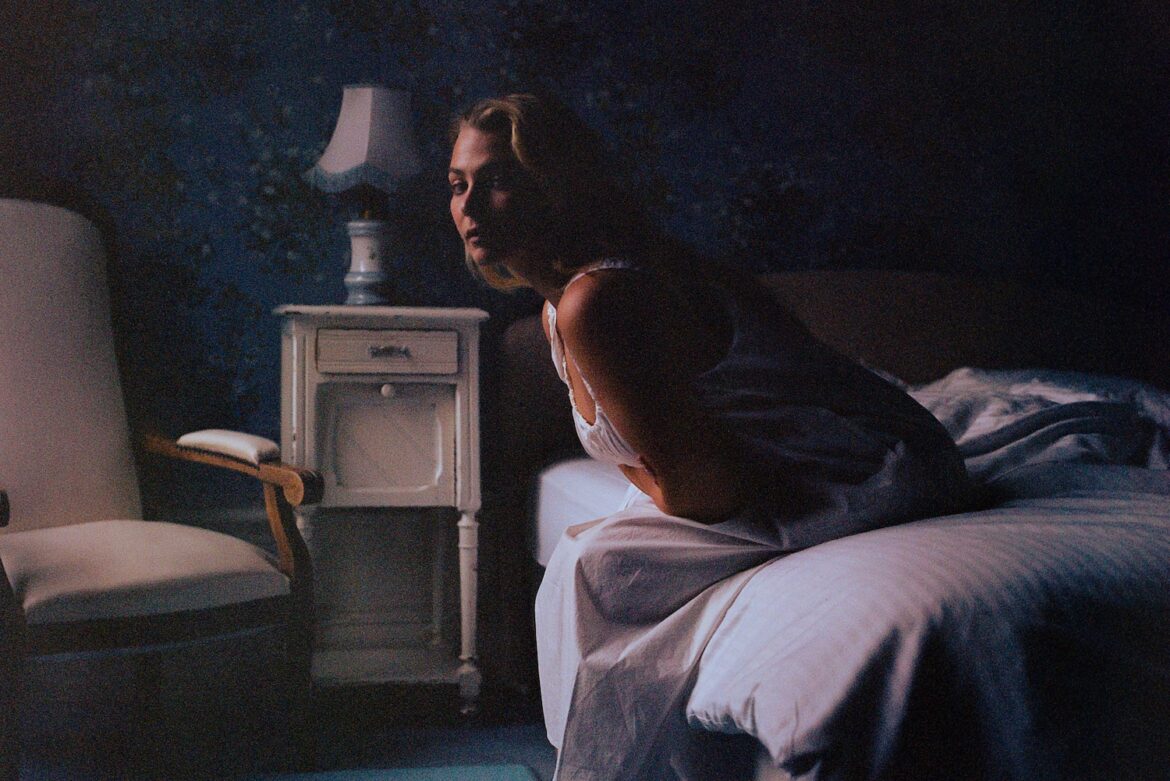
 © Sophia Matinazad
© Sophia Matinazad